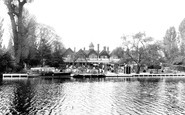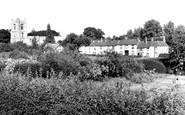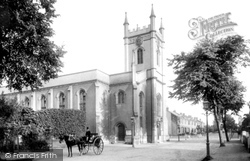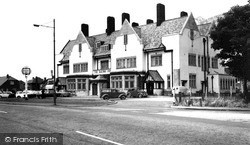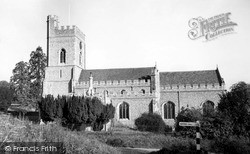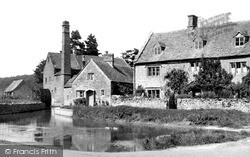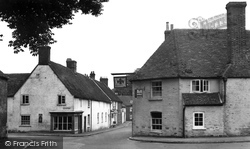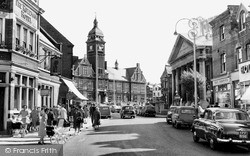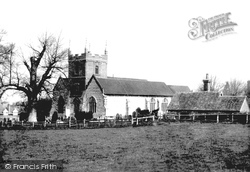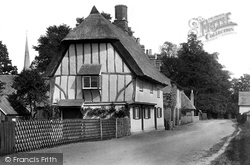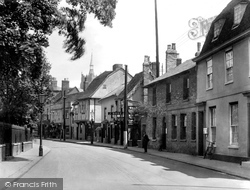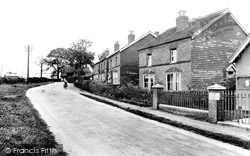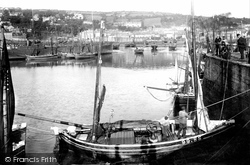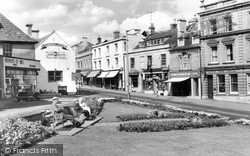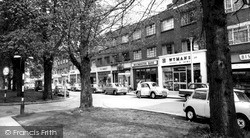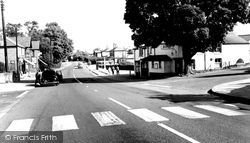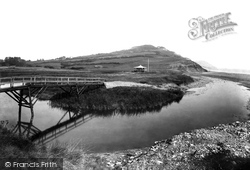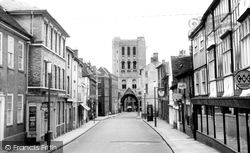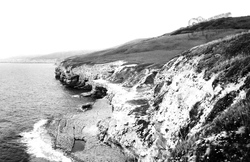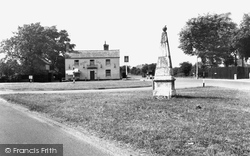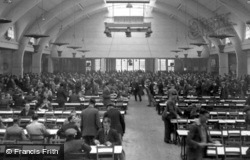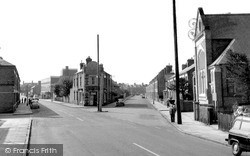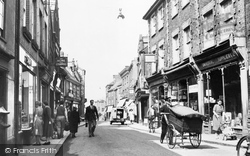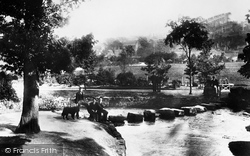Places
2 places found.
Those places high-lighted have photos. All locations may have maps, books and memories.
Photos
5 photos found. Showing results 81 to 5.
Maps
29 maps found.
Books
Sorry, no books were found that related to your search.
Memories
666 memories found. Showing results 41 to 50.
Ferry Approach
My dad opened his first shop in Ferry Approach, a cafe, it was situated directly outside the woolwich foot tunnel with plenty of dock workers and factory workers passing by every day and a constant stream of traffic queuing for the ...Read more
A memory of Woolwich by
Childhood Memories
I remember well the amazing west road this was a group of houses owned by watney brewery. The road was enclosed by a brick wall at one end and iron gates at the other. No cars allowed. The families mostly only rented two rooms, ...Read more
A memory of Mortlake in 1950 by
Beanz Dreamz...
Our family moved to Friars Road in the summer of 66, from a damp house in Boothen Green, which looked over toward the Michelin Factory. I was 5 years old. My father Graham was a former art student at Burslem College of Art under the ...Read more
A memory of Abbey Hulton by
Ellis Street, Crewe
Although I was born in Nantwich (1956), in the Barony hospital, I grew up in Crewe until the age of about twelve. We lived in Ellis Street, which then, if memory serves me right, only had three houses, even though we were in number 8! ...Read more
A memory of Crewe by
Camberley...Where Do I Start ?!
Our family lived at Lightwater (1 High View Road) ; I passed 11 plus and was sent to Frimley And Camberley County Grammar School, starting in Sept. 1959. One of the first things we had to do was to get the uniform. We ...Read more
A memory of Camberley by
Celebrating 75 Years
My parents met in Bray when my mother worked at the Hinds Head Hotel and my father sang in St. Michael's choir. She served the thirsty singers! This was back in the late 1930's. Born and raised in Bray parish I was confirrmed and ...Read more
A memory of Bray by
Combpyne Village Reservoir
I am a little bit unsure whether it was 1948 when my late father, the Revd Peter N Longridge, moved from Sticklpath in Barnstaple down to Combpyne. Or maybe a year or two later. The list of Rectors in the church will ...Read more
A memory of Combpyne in 1948 by
St. George's School, Flower Lane, Mill Hill, London, Nw7.
I too was a pupil at St. George's, probably from 1944 to certainly no later than 1950 when I was shipped off to a boarding school in Sussex where I remained until leaving at age 17 in 1956. I was ...Read more
A memory of Mill Hill by
The Salford Girl
I was born in 1947 and lived at 52 West St, Lower Broughton, Salford 7. I attended St. John's School for girls, just off Chapel St. My parents were Annie and David Johnson. I had an older sister, Jean, and a younger brother, David. My ...Read more
A memory of Salford by
Longleat
My grandfather Cecil Welch, who was the local estate agent and auctioneer based at the Old Town Hall in the High Street, bought several old cottages next to the blacksmiths in Church End for his son John and wife Peggy, at the vast ...Read more
A memory of Great Dunmow in 1948
Captions
388 captions found. Showing results 97 to 120.
Dating from about 1912 and now the NatWest Bank, it is in Queen Anne style using grey brick with fiery red brick dressings, deep modillioned eaves and large pedimented dormers.
St Mary's was built between 1877 and 1878 by John Cundall in brick with a prominent steeple.
still is, the main east/west route through the town, passing St Wilfrid's Church and Victoria Park with distant views of the South Downs; it encouraged en route travellers to stop and have a break
The original inn could not be demolished until the new pub was built, because at the time the licence had to be transferred from one premises to the other without a break in trading.
In 1960, at nearby Stoney Hill, bricks were still being made by hand.
A water mill has stood here since Norman times, but this red brick corn mill dates from the early 1800s.
We are looking northwards towards the Square (centre), with 18th-century brick and tile houses on both sides of Wimborne Street.
The Baptist Tabernacle and the Gas Board showrooms are to the right, whilst on the left stands the red brick Riflemans Hotel, which dates from 1888.
The bold square brick tower was built onto a 13th-century base c1656 after an earlier tower had collapsed.
In its place stands a row of brick terraced cottages.
The Gothic west front with a Decorated-style window and the gable tower were added in 1891 in white brick, almost masking the earlier red-brick 'preaching-box' behind.
Charcoal-making was a forest industry until the 1960s, and was carried out on sites within the forest.There were two brick works in the village.A road of brick cottages is seen next to the Wesleyan
The midships wheel, lying fore and aft, was used to make easier the back-breaking task of hoisting sails.
Don Lovelock remembers going in to buy loose biscuits weighed out from the tin and the assistant breaking a piece off to make it up to a pound.
The retention of the trees softening their setting is to be welcomed - but for how long, when in most parts of London insurance companies break out in a cold sweat at the very sight of a suburban tree.
The inquiry into the disaster led to three disagreeing reports in 1937 on the causes of the disaster and the owner William Bonsall was convicted on eight counts of breaking mining safety laws, yet he was
We are looking eastwards from the blocked mouth of the River Char, which ends its journey to the sea by having to break through a ridge of shingle (right).
This had been the Norfolk Coffee House; it was rebuilt in white brick in 1838.
Romantically named for the sea breaking across its rocks, Dancing Ledge is a mile south of Langton Matravers village.
Up to the 1970s, the Royal Oak public house offered a welcome break to travellers before they moved on to London or Thrapston.
After the war there were no more production workers' lunch breaks or children's parties here, as output became everything.
These red brick terraces were built to house the employees of hosiery and shoe manufacturers at the turn of the century.
Looking west along the High Street, we see buildings which are characteristic of North Norfolk: flints set in mortar, with brick facings.
This park was laid out for the benefit of working people to give them a break from the dust and grime of industrial Sheffield.
Places (2)
Photos (5)
Memories (666)
Books (0)
Maps (29)

